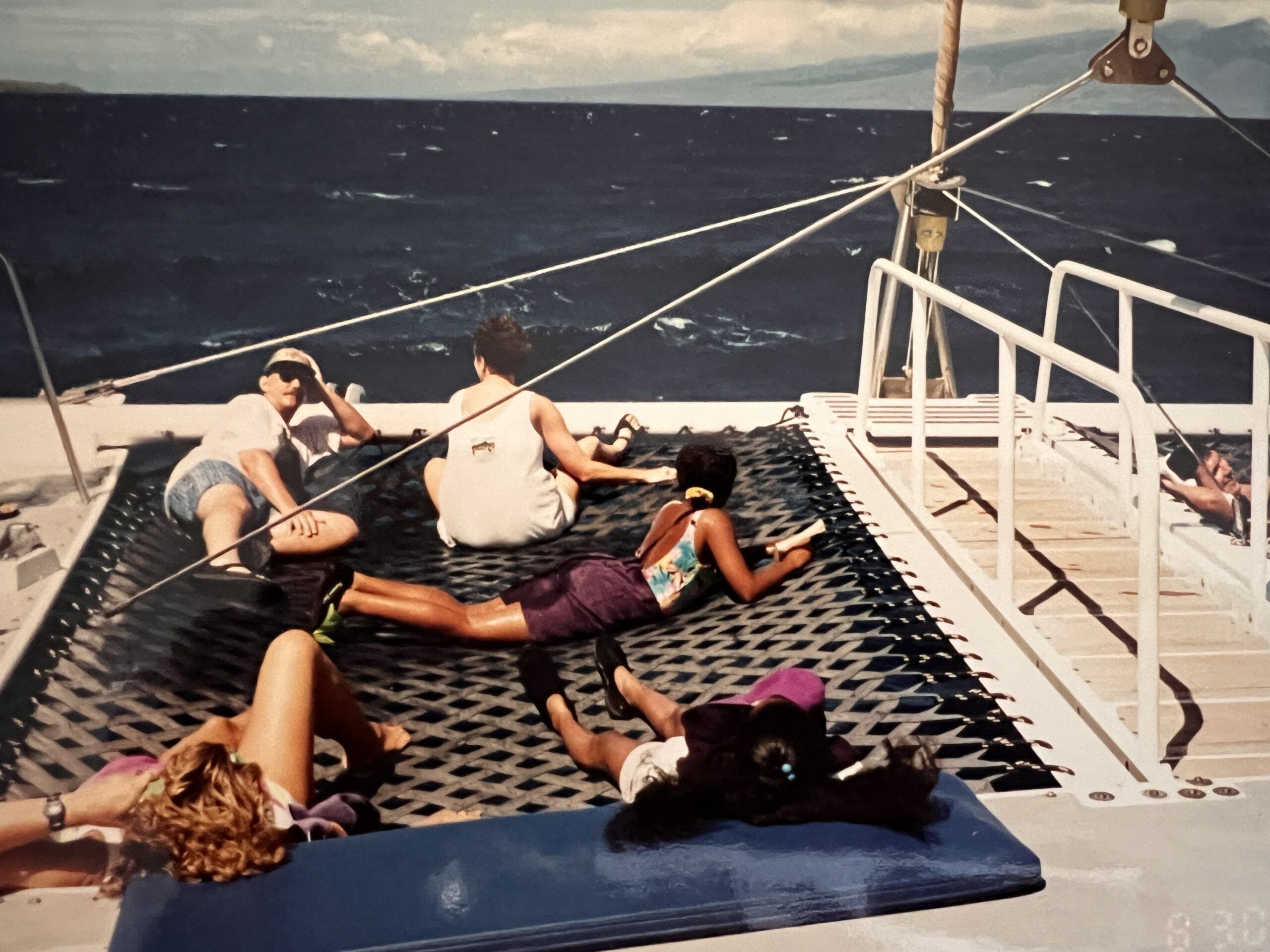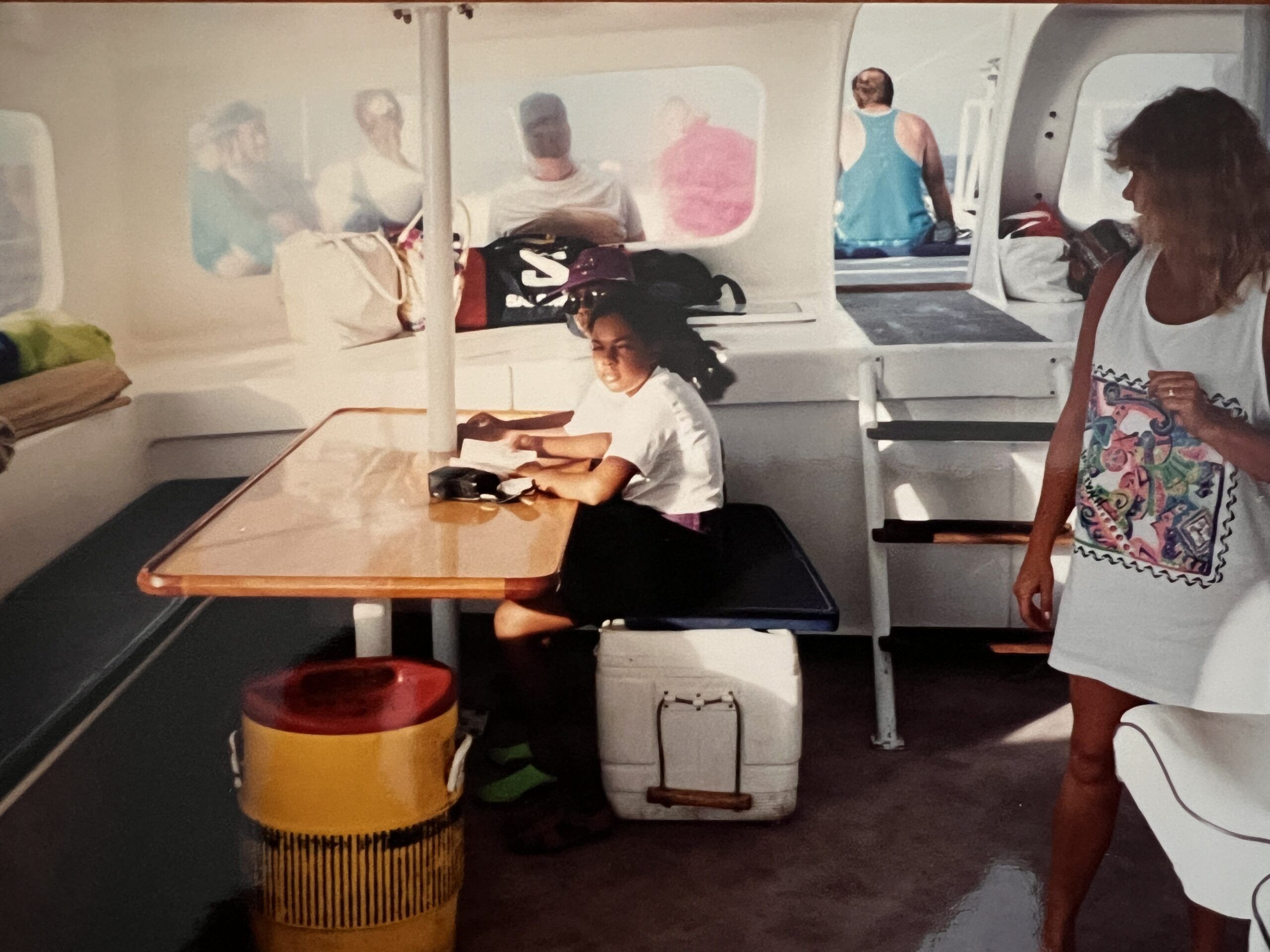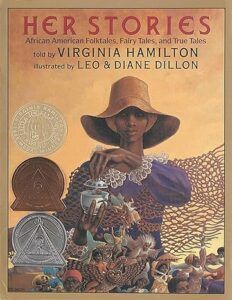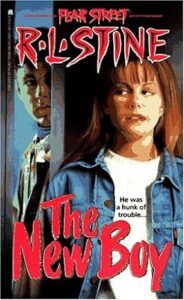The first time I encountered it was through an acquaintance’s post. At first glance I thought it was a nostalgic nod to Millennial horror series: Fear Street, Scary Stories, Goosebumps…many of my own childhood favorites! Then I read the caption. As a grown person looking back at the books I loved as a young reader I’d thought myself unique—a horror girly. While I didn’t know a lot of other kids who counted the Crypt Keeper of Tales From the Crypt fame among childhood icons like Big Bird and LeVar Burton, R.L. Stine wouldn’t be the household name he is if I was a special snowflake. The meme’s very existence tells me I’m not.
This made me realize that I have no idea what the kids are reading these days. Do they have their own nightmare fodder or are our old favorites really considered uniquely, perhaps prohibitively, ghoulish? And if the kids wouldn’t last an hour in our asylum, is it because we, the survivors and possibly the parents, have removed the tools?
We’re talking about a meme here so I approach this question with a whole lot of levity, but it did reignite a personal question I’d had in my head before basking in the Big Sib energy of this viral moment. I’d initially put the question of when and how to introduce certain types of stories to my own kids into my back pocket to be dealt with later. Instead of waiting for an inopportune moment—thick in a debate and in need of a thoughtfully crafted opinion yesterday, for instance—I’m going to work it out here.
The question first came up as my partner and I read a book from my childhood to our unborn children while I was pregnant. We’d taken up this routine to get them familiar with the sound of our voices and to explore our children’s book shelves, which included stuff we hadn’t read in a long time. I chose Her Stories: African American Folktales, Fairy Tales, and True Tales told by Virginia Hamilton and illustrated by Leo and Diane Dillon.
Hamilton was a big name in my childhood home thanks to her classic, The People Could Fly: American Black Folktales, but Her Stories is no under-the-radar read. It won a Laura Ingalls Wilder Award in 1995 and a Coretta Scott King Award. Out of this collection, I chose “Mary Belle and the Mermaid” and dropped into my amateur storytelling voice to begin. By the end of the story, my partner and I shared an expression that could best be described as “yikes.” This was in the Fairy Tales section of the book and I’d forgotten how Grimm these tales could be. There was no happy ending to be found, just death and sorrow.
Now, both The People Could Fly and Her Stories pass on old African American tales and you can’t separate the sorrows and tragedy born of slavery and hardship from the beginnings of our culture and community. Hamilton’s retellings both celebrate us while educating young readers about the enslavement and oppression of Black people in this country. There’s no way I’m not going to share these stories with them. But I also remember owning a well-loved children’s anthology of non-Disneyfied fairy tales complete with sordid details and unhappily ever afters. Compared to Hamilton’s oeuvre, these and most other beloved, morbid works read in my youth held suspect, if any, lessons, which brings me to the question beyond the meme—what’s my argument for encouraging our kids to read these “terrible tales?”
It took only a brief glance back at my memories to find my answer: they inspired a love of reading in me. The sheer entertainment was the point.


R.L. Stine’s Fear Street, in particular, came to mind. I remember the pride I felt when I decided it was time to graduate from Goosebumps to Fear Street and delighting in the addictive, soap opera quality of that series. The most vivid memory I have of it is reading a super fresh story from Shadyside High on a boat during a family trip in Hawaii way back in 1994 (I also recall clearly how a member of the ship crew loudly asked me if I was reading a steamy romance in front of everyone—a surefire way to mortify a 12-year-old). In The New Boy, the young women of Shadyside High vied for the attention of the new hottie in town. If there was something to be learned from that story, I must’ve missed it, but I had to know what happened next. While even a lifelong book nerd like myself wouldn’t trade the stunning Hawaiian vistas for an inked page because I’m more fully aware that life lasts only so long, you couldn’t tear me away from my book back then.
Those series had me waiting impatiently for the next release and I reread standalones countless times. I can’t be certain my kids will share the intensity of my passion for books, but if they fall for some scary stories scant on learning, I’m going to say godspeed in hopes it carries them to other books covering a wide spectrum of storytelling. And if not, they’ll probably still learn some new words and take a break from screens. If they ask to go to the bookstore or the library I’m going to do what my parents did for me: Vana White the entirety of the space and call it theirs to explore.
And if they choose horror, I’ll say, welcome to the asylum, young ones. You will definitely survive it.
Find more posts like this via our subscription publication, The Deep Dive! Weekly staff-written articles are available free of charge, or you can sign up for a paid subscription to get additional content and access to community features.








